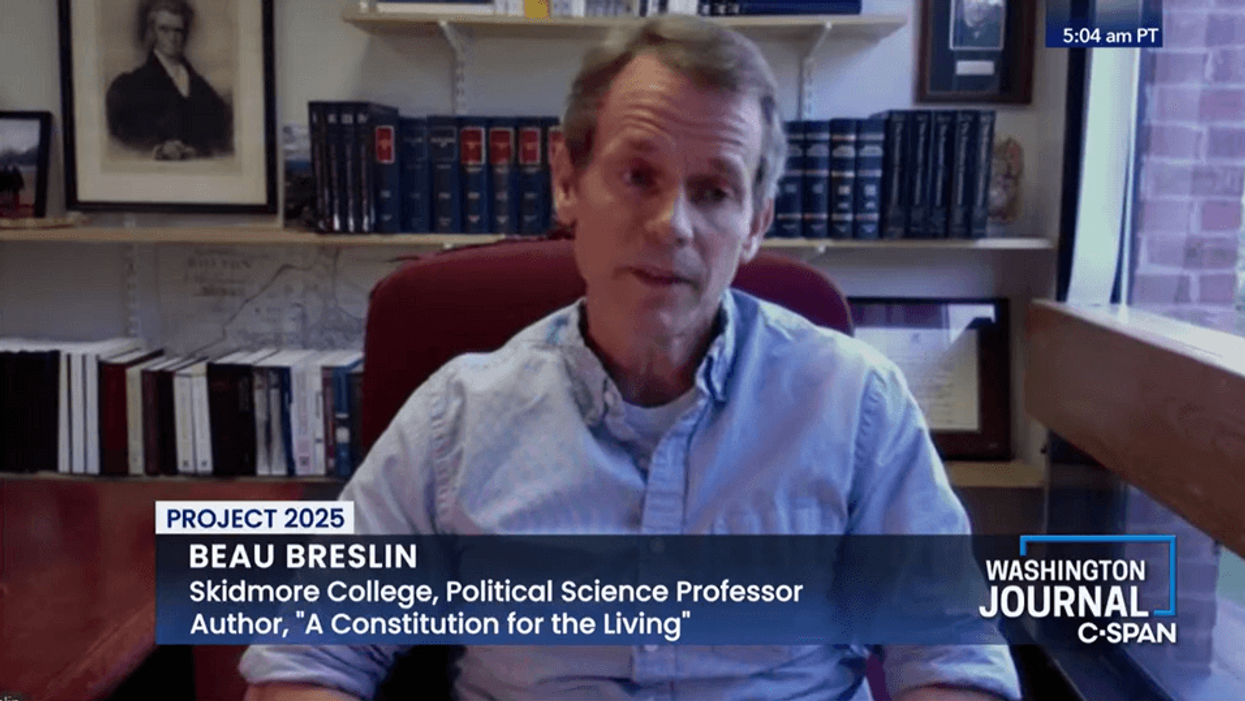Beau Breslin, a regular contributor to The Fulcrum, was recently interviewed on C-SPAN’s “Washington Journal” about Project 2025.
Breslin is the Joseph C. Palamountain Jr. Chair of Political Science at Skidmore College and author of “ A Constitution for the Living: Imagining How Five Generations of Americans Would Rewrite the Nation’s Fundamental Law.” He writes “ A Republic, if we can keep it,” a Fulcrum series to assist American citizens on the bumpy road ahead this election year. By highlighting components, principles and stories of the Constitution, Breslin hopes to remind us that the American political experiment remains, in the words of Alexander Hamilton, the “most interesting in the world.”
Most recently Breslin has also contributed to The Fulcrum’s 30-part series offering a nonpartisan counter to Project 2025, a conservative guideline to reforming government and policymaking during a second Trump administration. The Fulcrum's cross-partisan analysis of Project 2025 relies on unbiased critical thinking, reexamines outdated assumptions, and uses reason, scientific evidence, and data in analyzing and critiquing Project 2025.
While an in-depth analysis of what works and doesn't work in our democracy is a laudable and much-needed task, unfortunately Project 2025 is a biased political report designed to build a case for conservative solutions. The Fulcrum believes that a version of Project 2025 approached from a cross-partisan perspective, void of pre-determined left or right solutions, would serve as a guide for citizens and our elected representatives to ensure the healthy democratic republic we all desire.
Breslin’s interview on C SPAN offered an in-depth overview of the 990-page Project 2025 report and is a much-needed scholarly analysis of the Heritage Foundation’s comprehensive, far-reaching proposal.
In the interview, Breslin discusses the many controversial components of Project 2025, including its neo-isolationist and Christian nationalist temperament. He also discusses what Project 2025 would mean for America and how it promotes a degree of social, racial and religious intolerance. Callers to the show examined topics ranging from foreign aid to DEI policies, the proposed closing of the Department of Education and the reasons former President Donald rump might want to distance himself from the project. Consistent with the mission of The Fulcrum, Breslin tries to find common ground in a polarized and difficult political environment.
More articles about Project 2025
- A cross-partisan approach
- An Introduction
- Rumors of Project 2025’s Demise are Greatly Exaggerated
- Department of Education
- Managing the bureaucracy
- Department of Defense
- Department of Energy
- The Environmental Protection Agency
- Education Savings Accounts
- Department of Veterans Affairs
- The Department of Homeland Security
- U.S. Agency for International Development
- Affirmative action
- A federal Parents' Bill of Rights
- Department of Labor
- Intelligence community
- Department of State
- Department of the Interior
- Federal Communications Commission
- A perspective from Europe
- Department of Health and Human Services
- Voting Rights Act
- Another look at the Federal Communications Commission




















Trump & Hegseth gave Mark Kelly a huge 2028 gift